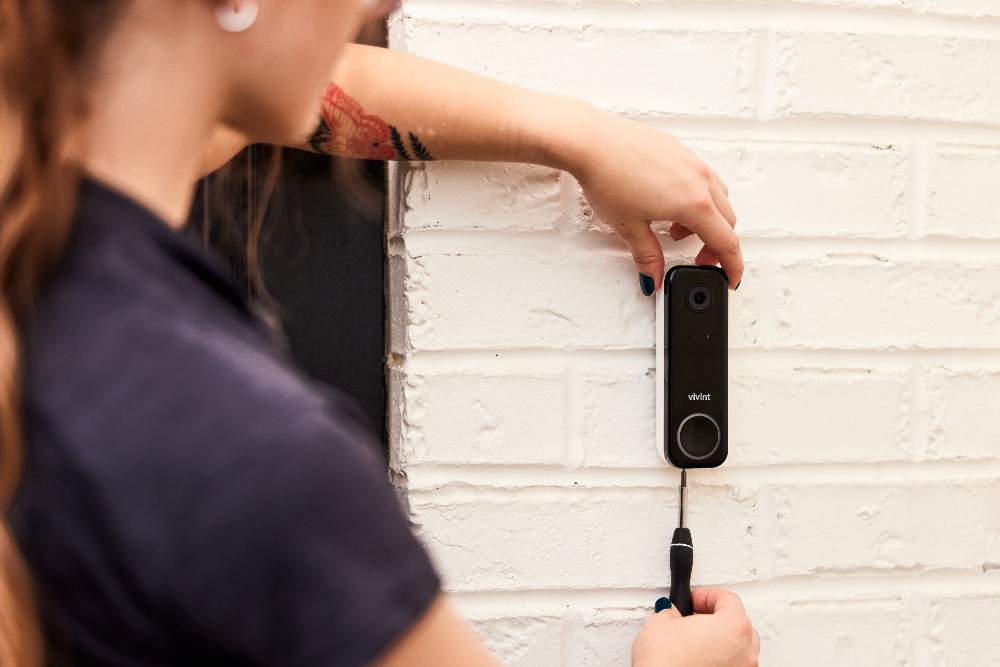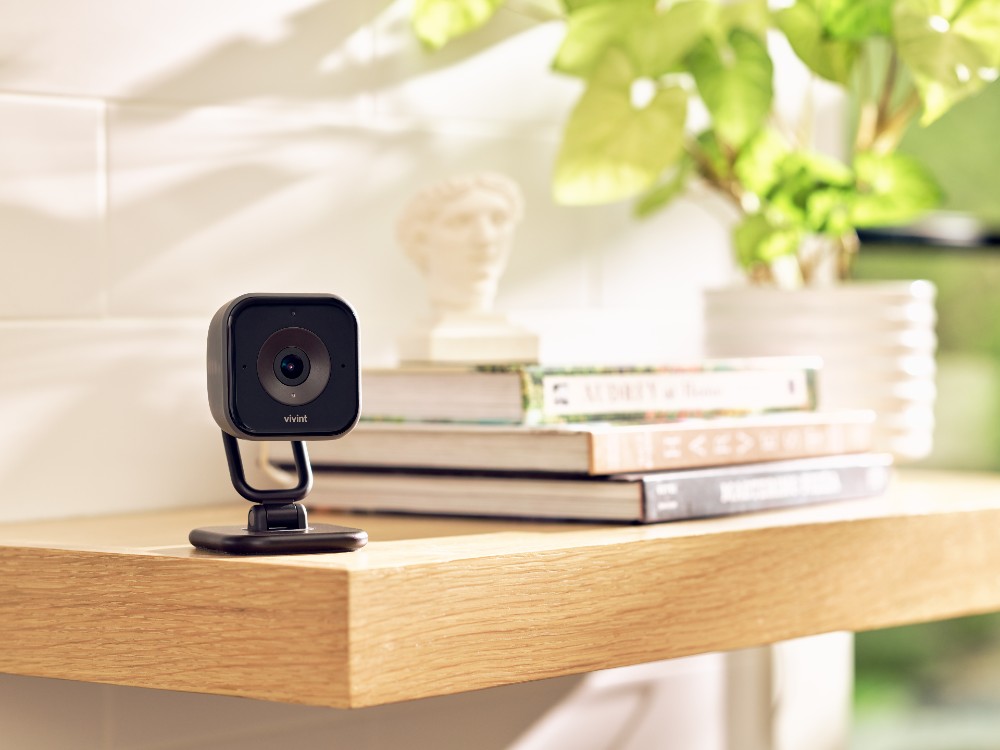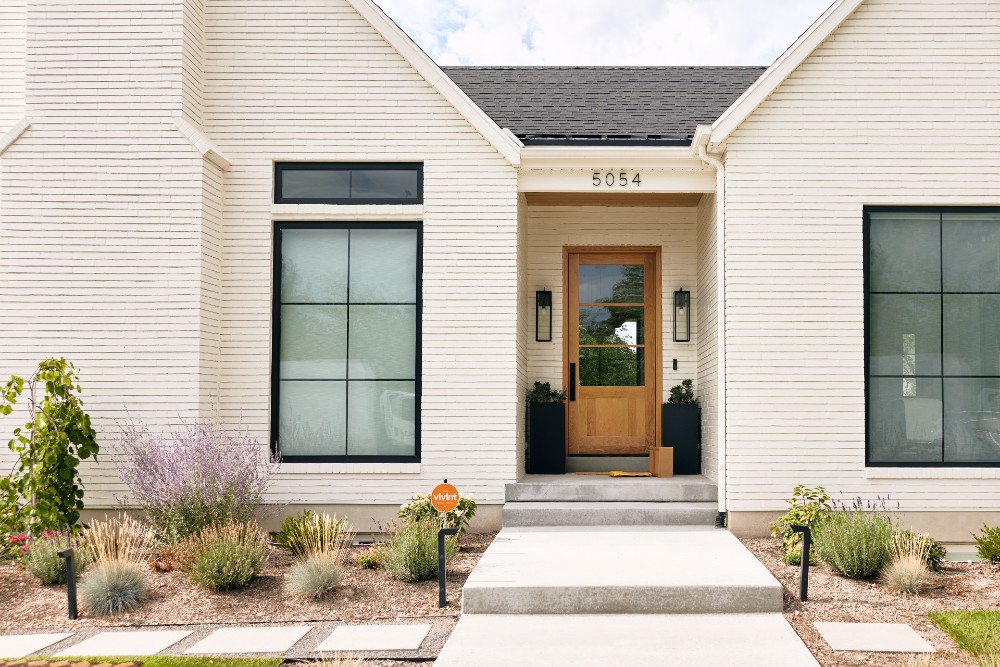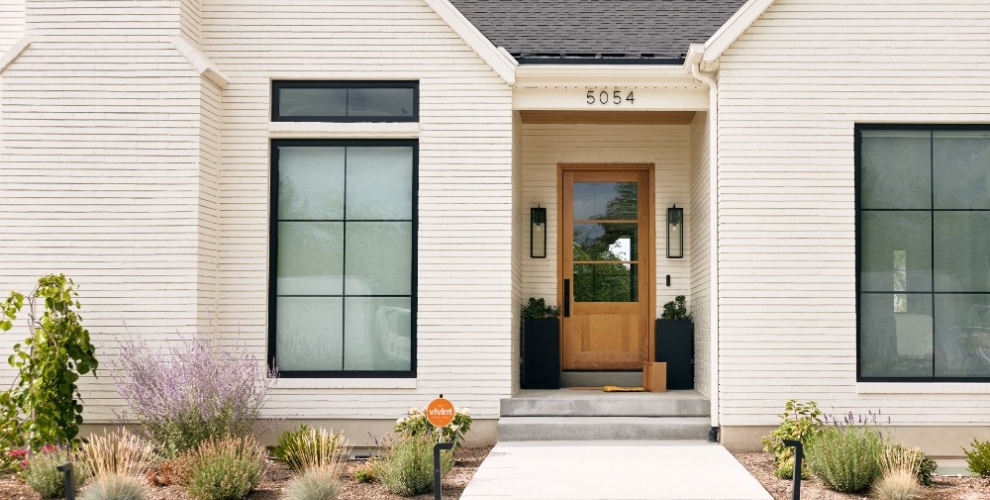Take in these charming toy versions of America’s top architectural styles, and learn how to enhance your home’s safety without compromising on style.
Exploring the Different Types of Home Security Systems
When looking at different types of home security systems, the varieties and features can be overwhelming. Some people hesitate to make a decision or rush into a purchase that isn’t right for them, but we want to help you avoid both of these missteps.
That’s why we’ve created this buying guide. When it comes to your home’s security, we’re not just talking about physical property. We’re talking about your loved ones, irreplaceable possessions, and overall peace of mind.
Whether burglary, violence, fire, or flooding, a comprehensive security system can safeguard you on all sides.
But you want to make sure it’s the best home security system for you.
In this guide, we’ll discuss:
- What home security systems are
- The various components of security systems
- The different types of home security systems
- What to consider when buying a security system
Let’s start by discussing what a home security system is and how it works.

What is a home security system?
A home security system consists of various components that work together to provide an early warning in the case of danger. These systems can protect your home from external threats, such as burglary or property damage. They can also detect and warn you of internal threats like fire or flooding.
Security systems tie a number of electronic devices and components, such as cameras, door locks, and sensors, into one central hub or control panel. Homeowners can use this hub to check and control each security system element.
Modern alarm systems also tie into smart home devices. This allows homeowners to automate their security features and even control their security system with voice commands.
Key home security system components
Every home is unique; that’s why professionals customize home security systems to the property they protect.
As mentioned, a comprehensive home alarm system ties together several security components. Let’s look at some key components and how they add to your home’s security.
- Security cameras. Outdoor cameras and indoor cameras with motion sensors, night vision, and floodlights allow you to keep an eye on all areas of your home.
- Video doorbells. Also known as doorbell cameras, these devices allow you to monitor your porch and front door. You will receive notifications when the camera senses motion outside your door, and you can even talk to the person on the other side.
- Smart locks. These smart door locks provide keyless entry into your home through specialized codes, fingerprint scanners, key fobs, or other digital methods. They also offer remote access, which you can use to lock and unlock your door from anywhere via a smartphone app.
- Security sensors. Smart entryway sensors, window sensors, and glass break sensors will alert you of any activity around your home’s entry points. Entry sensors will alert you when doors open and close. Motion detection sensors will notify you when they detect movement. And glass break sensors will alert you when they detect the sound of broken glass.
- Panic buttons. Panic buttons are convenient devices homeowners can push during an emergency or home invasion. When pushed, the button sends a signal directly to an alarm monitoring center, where a security professional calls emergency services. Some security control panels even have a built-in panic button as part of the security system.
- Fire and flood detection. Smoke alarms, carbon monoxide detectors, and water leak detectors notify you when they sense trouble. This early warning system helps prevent serious home damage and ensures everyone’s safety. A smart carbon monoxide or smoke detector can also integrate into your security system to keep you alert, even on the go.
- Hub or base station. All of your security system’s components tie into a central hub from which you can control it. This can include a touchscreen keypad, control panel, or smartphone app to control and check your home security.
- Smart home automation. Control your entire alarm system through your smart home devices, including Amazon Alexa and Google Assistant. Once set up, you can use voice commands and automate several security features so you don’t even have to think about them.
5 types of home security systems
Let’s consider five types of home security and monitoring options and how they function to keep your abode safe.
1. Monitored home security systems
Monitored systems operate through alarm companies, which offer professional home monitoring.
When your security system senses trouble—a burglary, fire alarm, broken glass, or something else—it sends a signal to a team of security professionals.
Then, these professionals assess the threat and contact you to verify your safety to prevent false alarms. If they determine the threat to be serious, they’ll contact emergency services on your behalf.
This 24/7 home monitoring gives you peace of mind knowing trained professionals are watching your back. Whether at home or away, you can rest easy knowing they’ll handle any issues.
Vivint security systems offer comprehensive protection with their 24/7 monitoring service and support. Our team of trained specialists is there to give you backup when danger strikes. If they can’t get ahold of you, they’ll send first responders to ensure your home and loved ones are safe.
2. App-based security systems
Most modern security systems connect to a mobile app so people can monitor their home’s safety from their mobile devices.
Mobile security apps offer many features, including:
- Access to live feed from indoor and outdoor security cameras
- Mobile alerts and notifications when the security system detects entry into the home or motion around it
- Remote control for arming and disarming the alarm
- Remote control for door locking and unlocking
- Two-way talk
- Smart home integration
- Custom actions (e.g., set the doors to lock at a certain time or unlock when the fire alarm sounds)
App-based security systems provide access to your home when you’re not there. Check your security status and receive a notification when there’s an issue—anytime, anywhere. And you can quickly use the app to sound an alarm and notify authorities if there’s ever a serious problem.
The Vivint security app works in tandem with Vivint’s state-of-the-art security devices, so you can enjoy peace of mind knowing your home is safe and secure.
In addition, the app gives you complete control over your home. This includes your door locks, thermostats, security lights, and cameras. It’s truly an all-in-one security solution in the palm of your hand.
3. Unmonitored security systems
An unmonitored system includes security cameras and window and door sensors. An alarm sounds when something triggers the system.
Unlike monitored systems, unmonitored systems don’t have a monitoring center. It is up to the homeowner or someone else to contact the authorities to report a problem.
Because most modern security systems connect to an app for self-monitoring, completely unmonitored systems are less common than they once were.
While less comprehensive than monitored systems, this type of system does offer a level of protection. The alarm system will trigger an alarm when it senses danger (e.g., a broken window or forced entry), often enough to scare off would-be burglars.
But realistically, an unmonitored system does leave your home vulnerable. After all, the lack of professional monitoring or the ability to check on your home through a mobile app leaves a figurative blind spot in your home’s security.
4. Wired security systems
These home security systems require a hard-wired connection to power all your security devices, including cameras and sensors. The system sends the information it gathers back to its central hub through this wire connection.
While these systems are not battery-powered, they usually come equipped with a battery backup to keep you covered in the case of a power outage.
Because wired security systems require running wires and drilling holes, professional installation is necessary.
When comparing wired versus wireless systems, wired wins out for its security and reliability. Consider a few of the advantages of a wired system:
- Better video quality. Wired systems are not impacted by electromagnetic interference, resulting in higher-quality and smoother video.
- No batteries needed. With a wired system, there is no need to change batteries or worry about them dying.
- Harder to hack. Hackers have a more challenging time hacking these systems than wireless ones because everything is hard-wired.
Of course, this doesn’t mean a wired system is for everyone. Let’s look more closely at wireless systems and see where they’re most useful.
5. Wireless security systems
Wireless systems often use a combination of wifi networks and radio waves to send signals and notifications throughout the alarm system.
Any video or other security information recorded by wireless systems backs up to cloud storage. This storage usually comes with a monthly fee.
Here are some of the pros of having a wireless system as opposed to a wired one:
- Affordability. Wireless systems tend to be cheaper.
- Flexibility. If you move, you can easily take it with you.
- Convenience. No need to drill holes or run wires through your home.
- Easy to put up and take down. Great if you’re renting or just using it short-term.
The drawback to these systems is that they rely entirely on your Wi-Fi. Down internet or an unreliable router will affect your security’s quality.
And while wireless systems are more susceptible to hacking than wired ones, you can take steps to protect yourself. This includes installing and activating firewalls, setting up secure passwords, and using a Wi-Fi router with Wi-Fi protected access (WPA).

What type of home security system is best?
Out of all the options discussed, what system offers the most security?
For that, we would have to go with monitored security systems.
These systems offer the most comprehensive security options. In addition to security system access through a mobile app, you also have the advantage of a team of experts keeping an eye out for your well-being.
Knowing you are protected at any hour of the day or night (whether at home or not) provides confidence and inner peace. There’s just nothing that beats that feeling.
Ultimately, choosing which security system is best depends on your personal security needs. That’s why knowing each system’s features and weighing your personal factors are important when making this decision.
Let’s look at a few personal factors everybody should consider when deciding which kind of security system to purchase.
What to consider when choosing a home security system
Here are a few things to consider when choosing the right home security system for you, your family, and your home.
- Customization options. Quality security systems allow you to customize your system to your needs. Look for a security system that offers multiple package options to fit your situation.
- Equipment. From security cameras and motion detectors to the base station that controls it all, decide what specific equipment you want in your security system.
- App integration. An intuitive smartphone app with an easy-to-use interface lets you connect to and control your home security system from anywhere.
- Professional installation. When you choose professional installation, free with all Vivint security systems, you can be confident that your family and property are 100% protected. In contrast, DIY home security systems leave your home vulnerable. After all, someone doing their own DIY installation may fail to follow the proper steps or be ignorant of security vulnerabilities.
- Contract options. Reading the fine print on security contracts is always a good idea. For example, is the contract for a fixed period or month-to-month? What is protected under their warranty? Are there cancellation fees?
- Smart home compatibility. Smart security components give you complete control over your home’s security. And when they integrate into your smart home devices, they can streamline your security experience.
- Professional monitoring. 24/7 professional alarm monitoring provides you with security experts who have your back. When talking with security companies, ask about their monitoring center and what monitoring fees they charge.
- Home size. The larger your home, the more areas you’ll need to monitor—and the more equipment you’ll need. Those renting a small apartment won’t need as much equipment, but they’ll still need permission from the landlord for some security options.
- What you want to monitor. What are your main concerns? Are you worried about break-ins and burglars? Do you want to keep your family safe? Do you have valuables that you want to monitor? Are you concerned about fire, flood, or carbon monoxide poisoning? The answers to these questions will help you determine which security components you’ll need.
- What you already have. People with smart home devices, such as Amazon or Apple products, may want a security system that can integrate with those options.
- What permits you’ll need. In some areas, local authorities require you to obtain a permit for your alarm system. Do your homework and contact your local authorities to find out what you need.
Check out our Guide to Choosing the Best Home Security System for more details on these options.

Discover the leading home security system options from Vivint
Between your home and loved ones, you have a lot in this world to protect. We hope this guide has empowered you to take charge of your home’s security and find the system that fits your needs.
Learn more about Vivint home security systems, including our state-of-the-art security technology and professional services.
Our smart home security systems include all the options, devices, and integrations for the ultimate security experience.
Find out how Vivint can make your home more comfortable and convenient. Call us at 855.822.1220 for a free consultation today.
Get a free quote today.
A Vivint Smart Home Pro will contact you within 24 hours. Or skip the form and call now: 844.481.8630.


